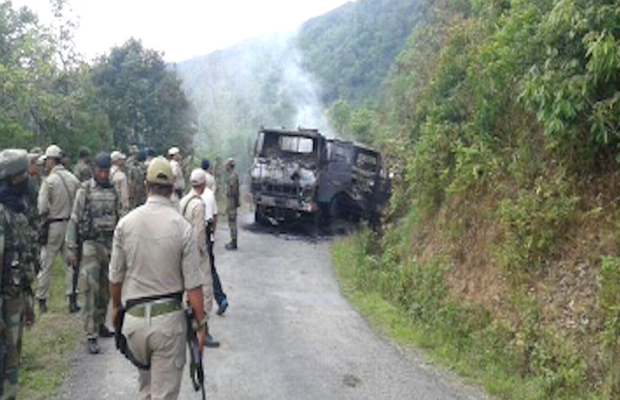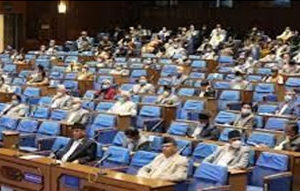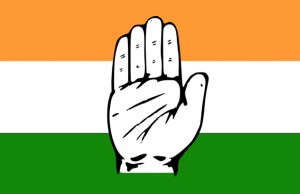IMMATURE STATESMANSHIP

By publicising a covert operation India is being seen in diplomatic circles
across the world as a pompous attention starved nation.
One cannot find a parallel akin to the one that we have witnessed recently during the Myanmar episode. The way the Prime Minister Modi’s ministers felt compelled to brag about the ‘heroic deeds’ of the Indian Army’s cross-border strikes has dented India’s foreign policy prospects. India and Myanmar entered into an agreement on 20 December 2010 that allows Indian forces to cross the borders in pursuit of militants who escape to Myanmar. In a meeting that took place in eastern Mizoram’s Champhai town, on 17 December of that year, Myanmar authorities had agreed to allow Indian security forces to enter Myanmar territory along the border after getting permission from the local army post commander. The Indian delegation was led by home ministry’s then joint secretary S. Singh and the Myanmar officials headed by U. Nay Wing, the then army commander of Chin state. It is imperative that in any such bilateral security agreements between two sovereign countries, there were permissions to be obtained and due processes to be followed while crossing the border. It was an exceptionally friendly gesture from the Myanmar government to allow such cross-border operations. It was also exceptional diplomacy on the part of the Congress-led UPA government to get such an agreement actualised without many hiccups. There may have been countless occasions in the last four years when Indian troops would have crossed borders for counter-terrorist operations( after availing due permissions). However unlike the Modi government nobody saw the need to go to town with the news claiming credit.
The pompous claims over a supposedly covert operation have made India a laughing stock in diplomatic aisles across the world. The claims by India have also led Myanmar to reassert its sovereignty and have compelled the Myanmar government to announce that the Indian Army never entered their territory. National Security Advisor Ajit Doval had to fly to Myanmar to do a damage control exercise as New Delhi was getting indications that Myanmar will reconsider any such assistance in the future.
The episode raises some pertinent questions. Was it for the first time in our country’s nearly six decades old existence that our neighbours have provided assistance to India in dealing with militant outfits? It is Modi’s signature style to propagate that everything in the eminent realm of government operations has been invented by his government in the past one year. In fact, Bangladesh, Bhutan and Myanmar have discreetly provided similar assistance in the past to India. The Indian Army has over the years conducted operations, or assisted the armed forces of neighbouring countries in flushing out Indian militants camping in their respective territories. The unwritten rules of international diplomacy say that all these operations should either be projected as solo operations of the armed forces on whose home soil they take place or they should be kept strictly under wraps. Which country on the earth, however, small or powerless it may be, can afford to be seen as compromising its sovereignty for whatever expedient reason? There are talks in diplomatic circles that Myanmar is upset because India did not keep it in the loop during the current cross-border strikes.
Be that as it may the details of the covert operations should have been kept secret for the sake of the long-standing friendship with Myanmar. It was reckless and foolish on the part of Modi’s ministers to dance ebulliently like kids over a serious affair.
Arunachal Pradesh, Nagaland, Manipur and Mizoram share the 1,640-km long international border with Myanmar manned by Assam Rifles. The dense forests in most parts make the border extremely porous and highly vulnerable. Given this India certainly has a right to do everything possible against the separatists residing in its own territory. The United Nations Charter expressly forbids the use of force in interstate relations. Sovereignty is held to be a cardinal maxim that cannot and should not be violated. After the Myanmar saga, the Modi government has gone further and asserted that this operation was not an isolated one and it would hold such operations against hostile states and groups in the future too. This means that India’s National Security doctrine has undergone a radical departure from its stated official version. It has shifted gears from being reactive to aggressive. But are we, as a nation, seriously prepared for this shift? South Asia is a heavily militarised region. Do the cheerleaders of Modi government even have the capacity to understand the major consequences of their casualness in matters such as Myanmar episode? Can the ministers be allowed to use their loose tongues as a result of which the subcontinent hurtles towards a bleak future? A retired Army Colonel turned minister of state could not have spoken about the incident unless the highest level in the government had felt the need of a political intervention. It was not a coincidence. Who is the person who wanted to take political credit of such a military operation?
The whole ill-conceived PR effort has boomeranged very badly on the government. So much so that the meeting of Nobel Peace laureate Aung San Suu Kyi, who leads Myanmar’s opposition, with Chinese President Xi Jinping of China has taken on new meaning. Her trip to China is being seen by seasoned political analysts as underscoring her transformation from a global icon of democracy to a politician with ambitions to form her country’s next government. Let us not forget that Suu Kyi had expressed her hurt over India’s behaviour during the long years and days of her imprisonment. The efforts of China’s ruling communist party to woo Suu Kyi might get momentum with Modi government’s most recent mishandling of relationships between Myanmar and India.
Narendra Modi and his overenthusiastic devotees must understand that in the world of diplomacy some things are better left unsaid. Diplomacy is more than saying or doing the right things at the right time, it is avoiding saying the wrong things at any given time. No country on the planet should take India for granted, but at the same time the country’s ruling leadership must not forget that India is a new claimant of a place at the high table in the world and has huge stakes in the arena of global politics. Maintaining and enhancing India’s influence and soft power remains a top priority but in the process Narendra Modi has to make his Government’s more responsible and accountable.




You must be logged in to post a comment Login